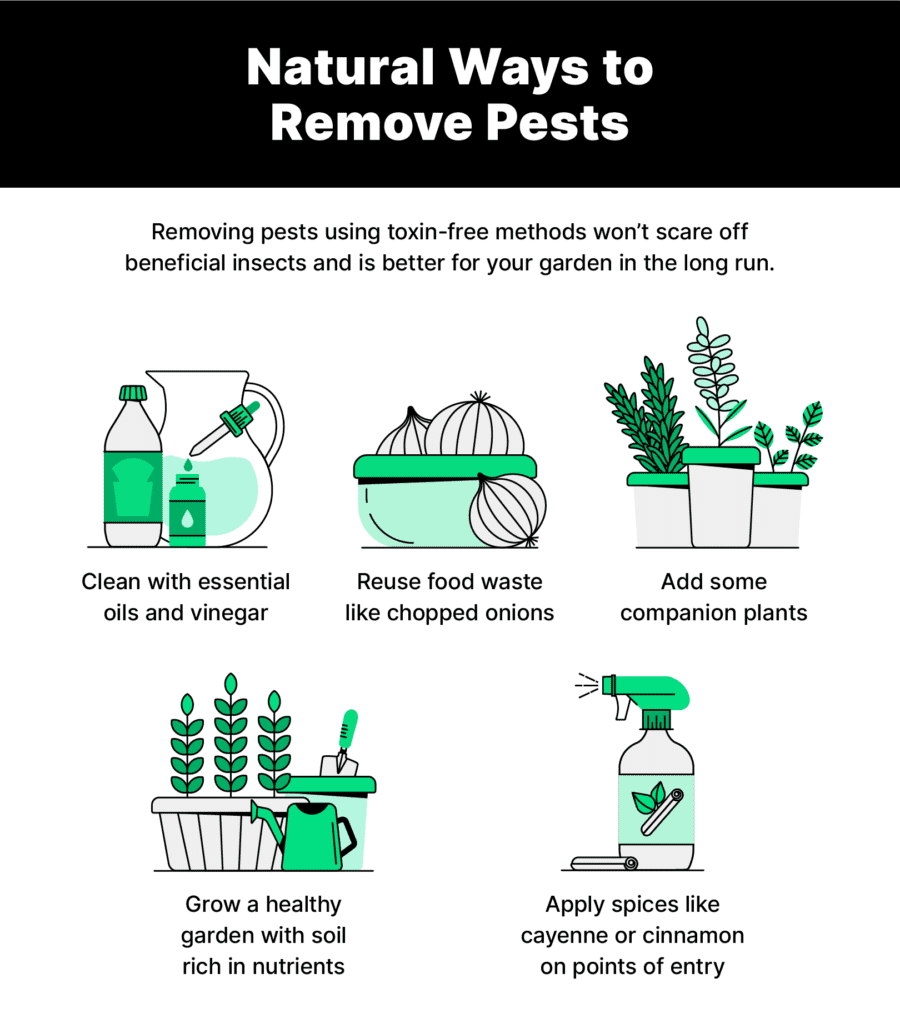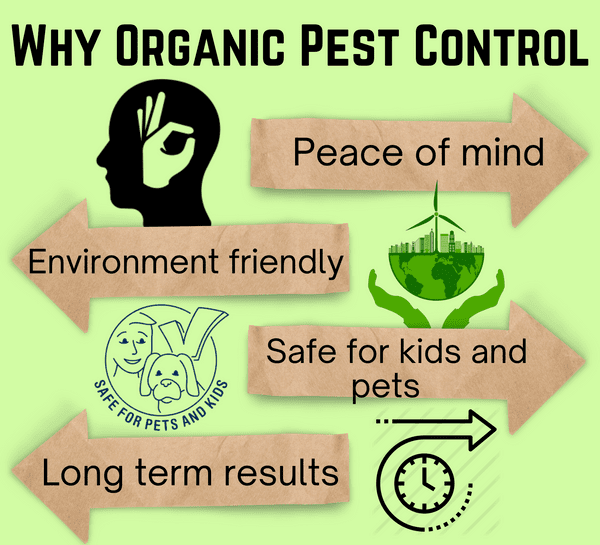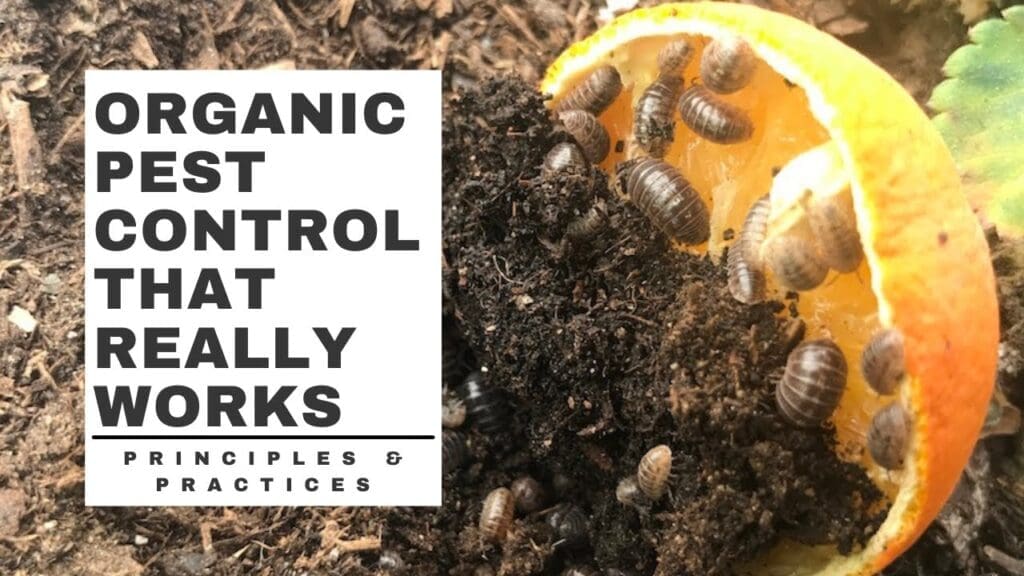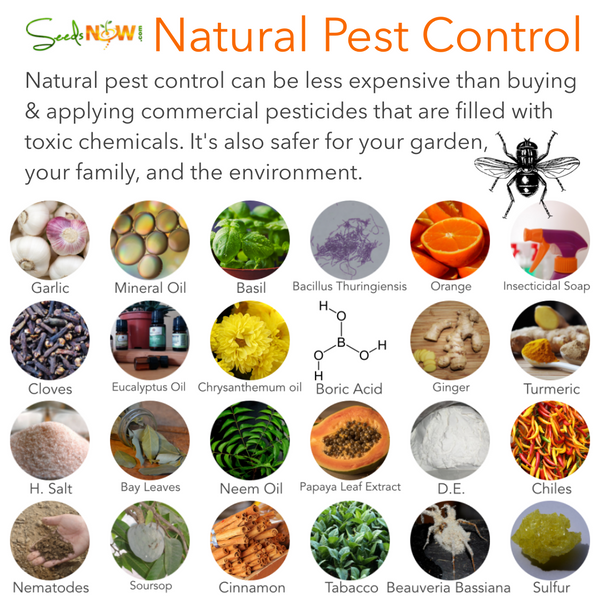In this informative article, you will discover the advantages and top methods of organic pest control. From keeping your home free from unwanted visitors to maintaining a healthy environment, organic pest control offers a range of benefits. By understanding the best practices and implementing them, you can effectively tackle pest issues without compromising your health or the environment. Whether you’re dealing with ants, mosquitoes, or rodents, this article will equip you with the knowledge you need to take control. So let’s dive in and explore the world of organic pest control together!

What is Organic Pest Control?
Definition of Organic Pest Control
Organic pest control refers to the use of natural, non-toxic methods to prevent and manage pest infestations in homes, gardens, and agricultural settings. It involves the use of environmentally friendly approaches that do not rely heavily on synthetic chemicals or harmful pesticides.
Difference between Organic and Conventional Pest Control
Conventional pest control, also known as chemical-based pest control, relies on the use of synthetic pesticides and toxic chemicals to eliminate pests. These chemicals may effectively control pests, but they can also harm beneficial insects, pets, humans, and the environment. On the other hand, organic pest control uses naturally occurring substances and biological methods to control pests. This approach prioritizes the preservation of ecosystems, the health of humans and pets, and the sustainability of our environment.
Importance of Organic Pest Control
Organic pest control is becoming increasingly important in our modern world. With growing concerns about the adverse effects of synthetic pesticides on human health and the environment, it is crucial to adopt sustainable and eco-friendly pest control methods. Organic pest control helps protect our health, biodiversity, and the long-term sustainability of our ecosystems. By using natural methods, we can effectively manage pests without causing harm to ourselves or the environment.

Benefits of Organic Pest Control
Safe for Humans, Pets, and the Environment
One of the significant benefits of organic pest control is its safety for humans, pets, and the environment. Unlike conventional pest control methods that utilize harmful chemicals, organic pest control relies on natural ingredients that pose minimal risk to our health and that of our beloved pets. By choosing organic pest control, you can create a safe living environment for your family and reduce the risk of adverse health effects associated with chemical exposure.
Minimal Health Risks
Chemical-based pest control methods often carry significant health risks. Prolonged exposure to synthetic pesticides can lead to various health problems, including respiratory issues, allergies, and even severe diseases. Organic pest control eliminates these risks by utilizing natural substances and biological agents that are less harmful to our bodies. By choosing organic pest control, you can protect yourself and your loved ones from the potential health hazards associated with conventional pest control methods.
Preservation of Ecosystems
Synthetic pesticides not only eliminate pests but also harm beneficial insects, such as bees and ladybugs, that play crucial roles in our ecosystems. Organic pest control methods aim to preserve the delicate balance of nature by targeting pests directly, without causing harm to beneficial insects and other wildlife. By embracing organic pest control, you contribute to the preservation of biodiversity and the overall health of our ecosystems.
Improved Soil Health
Chemical pesticides can have detrimental effects on soil health. They can deplete the soil of essential nutrients, disrupt the natural microbial balance, and harm beneficial organisms that contribute to soil fertility. In contrast, organic pest control methods promote soil health by utilizing natural substances that do not interfere with the soil’s natural processes. By choosing organic pest control, you can maintain the fertility and productivity of your soil, which is essential for healthy plant growth.
Long-Term Effectiveness
While synthetic pesticides may provide quick results in eliminating pests, their effectiveness often diminishes over time. Pests can develop resistance to these chemicals, requiring higher doses or the use of stronger pesticides. Organic pest control methods, on the other hand, focus on sustainable, long-term solutions that target the root causes of pest problems. By implementing organic pest control practices, you can achieve long-lasting pest management without the need for continuous reliance on chemical interventions.
Reduced Chemical Exposure
By choosing organic pest control, you can significantly reduce your exposure to harmful chemicals. Conventional pest control methods involve the use of toxic substances that can linger in our living spaces and contaminate the environment. Organic pest control, on the other hand, utilizes natural ingredients that are safer and less toxic. This reduction in chemical exposure can have significant benefits for both short-term and long-term health, resulting in a safer and healthier living environment for you and your family.

Best Practices of Organic Pest Control
Identifying and Monitoring Pest Issues
One of the key best practices in organic pest control is to identify and monitor pest issues early on. Regular inspection of your home, garden, or crops can help you detect pest infestations before they become severe. By identifying and monitoring pest populations, you can implement appropriate control measures promptly, minimizing the need for drastic interventions.
Prevention Techniques
Prevention is an essential aspect of organic pest control. By employing preventive measures, you can avoid pest infestations altogether. This can include practices such as maintaining good sanitation, sealing entry points, and using physical barriers to keep pests out. Preventive measures create an inhospitable environment for pests, reducing the need for aggressive pest control methods.
Cultural Controls
Cultural controls involve modifying the environment to deter pests and promote plant health. This can include practices such as crop rotation, intercropping, and proper spacing between plants. By adopting cultural controls, you can disrupt pest life cycles, reduce pest populations, and promote overall plant vigor.
Mechanical Controls
Mechanical controls are physical methods of pest control that involve the use of barriers, traps, and hand removal. This can include techniques such as using row covers, installing insect netting, or manually removing pests. Mechanical controls provide targeted solutions that are effective against specific pests while minimizing the use of chemical interventions.
Biological Controls
Biological controls utilize natural enemies of pests, such as predators, parasites, and pathogens, to manage pest populations. This can involve introducing beneficial insects or using microbial agents that specifically target pests. Biological controls offer a sustainable and eco-friendly approach to pest management by harnessing the power of nature.
Botanical Controls
Botanical controls involve the use of plant-based products, such as neem oil, garlic spray, or pyrethrin, to repel or kill pests. These natural substances have been used for centuries and can be effective against a wide range of pests. Botanical controls provide an alternative to synthetic pesticides, offering a more environmentally friendly option for pest control.
Creating Habitat for Natural Predators
Encouraging natural predators in your garden or agricultural setting can help control pest populations naturally. By providing suitable habitats, such as native plants and insectary plants, you can attract beneficial insects that prey on pests. This can create a balanced ecosystem where natural predators keep pest populations in check.
Crop Rotation
Crop rotation is an effective method of organic pest control in agricultural settings. By rotating crops in a specific sequence, you disrupt pest life cycles and reduce the buildup of pests associated with monoculture. Crop rotation can help break pest cycles and reduce the need for chemical pesticides.
Companion Planting
Companion planting involves planting different crops together to maximize their benefits and deter pests. Some plant combinations have natural pest-repellent properties, while others attract beneficial insects that help control pests. By practicing companion planting, you can create a diverse and resilient garden ecosystem that reduces the reliance on chemical pest control methods.
Proper Use and Application of Organic Pest Control Products
When using organic pest control products, it is essential to follow the manufacturer’s instructions and apply them correctly. This ensures optimal effectiveness and minimizes any potential risks. Organic pest control products should be used judiciously and as a part of an integrated pest management approach that incorporates other organic practices.
In conclusion, organic pest control offers numerous benefits over conventional pest control methods. It is safe for humans, pets, and the environment, and it promotes the preservation of ecosystems and improved soil health. By implementing best practices such as identifying and monitoring pest issues, employing preventive techniques, and using organic pest control products properly, you can effectively manage pests while minimizing your reliance on harmful chemicals. Embracing organic pest control not only provides a sustainable solution to pest problems but also contributes to a healthier and more harmonious living environment.


I am Randy, the author behind PestControld.com. Drawing from decades of experience, I aim to provide valuable insights, expert advice, and practical recommendations to help you make informed decisions when assessing viable pest control solutions.